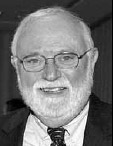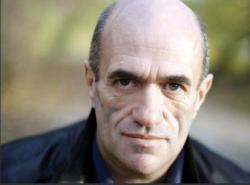
June 1, 2017
The Eire Society scored a coup when it presented the 2017 Gold Medal Award, an honor for individuals who “exemplify the best of Irish culture and ideals,” to Colm Tóibín. The awards ceremony took place on April 29 at the Hyatt Regency in downtown Boston.
“We are particularly pleased to present the 2017 Gold Medal to Professor Tóibín,” said Tom Carty, society president. “His accomplishments have vaulted him to the forefront of the Irish literary scene. His direct and thoughtful positions on matters of social importance make him a visionary spokesperson for the citizenry of Ireland and its world-wide diaspora.”
A man of many talents, Tóibín is known as the author of the 2009 work “Brooklyn,’ the poignant story of a young Irish woman who emigrated to New York in the 1950s. The book was made into a major motion picture in 2015, with themes evocative of the stories of so many Irish who left their homes to find new lives here.
 Colm Toibin
Colm Toibin
Now teaching at Columbia University as the Silverman Professor of the Humanities, the novelist has earned acclaim as a short story writer, playwright, journalist, and literary critic. And for this night, the awardee was in full professorial mode, weaving a story of contemporary Irish history to a receptive audience of some 120 society members.
The son of a school teacher, and the grandson of Patrick Tóibín, who took part in the 1916 rebellion and was interred in Wales, Colm was born in Enniscorthy, Co. Wexford, and recalls as a boy seeing President John Kennedy visit in 1963. “Back a few years ago, in New Ross when the Kennedy family visited, I met Arthur Schlesinger and told him I had read all his speeches,” he said. “He told me to look more carefully at [JFK’s speech to the Dail], because they put something in there, two words that had never been heard in that building before then.
“The words were ‘James Joyce,’ ” Toibin said, adding that Kennedy had recognized the great Irish playwright who lived and worked during a “shameful time, a draconian system” in Ireland, when the internationally acclaimed writer “was not treated with any honor in the country, and the president decided he wanted to put a very quiet hint” that this had to stop.
Tóibín told the story of a Boston event in 1897 when the celebrated philosopher-psychologist William James, the brother of Henry James, was present at the dedication of the majestic bronze Robert Gould Shaw Memorial to the 54th Regiment of the American Civil War. The James brothers’ father was a great abolitionist, tracing family roots back to their grandfather, an Ulster Scots Protestant who emigrated to Boston in the late 1700s with “the Presbyterian ideals of liberty.”
“Those ideals of liberty in the American constitution, some of them came from Ireland to America,” Toibin told his audience. “The first book I wrote, I took a walk along the [Northern Ireland] border, and I saw things that were very shocking, but also I saw things that were very funny. Walking along the north-south border, I saw a man from the north and I asked him what the worst thing was about it. ‘The worst thing about it is you,’ he said, ‘people like you asking me about it.’ ”
Tóibín referenced the concern in the wake of last year’s Brexit vote about the possible return from the current soft border to a hard border, a closing of a border that has been open for a generation.
“It is a remarkable thing that has happened – they took the guns out of Irish politics and now they’ve put the passport into Irish politics. And anyone in Northern Ireland can get a EU passport. If you go to Spain for your holidays, you’ll get stopped as a British citizen, but you can get through as a member of the European Union.”
He said he learned that day that a former British ambassador to Ireland, Sir Ivor Roberts, has formally become an Irish citizen. “Oddly enough,” said Tóibín, “he announced that his father had been born in Belfast,” which entitles him to obtain a EU passport after Brexit is fully implemented.
“An Irish solution to a British problem,” Tóibín called it, to a round of cheers and laughter from the Irish- American audience.

